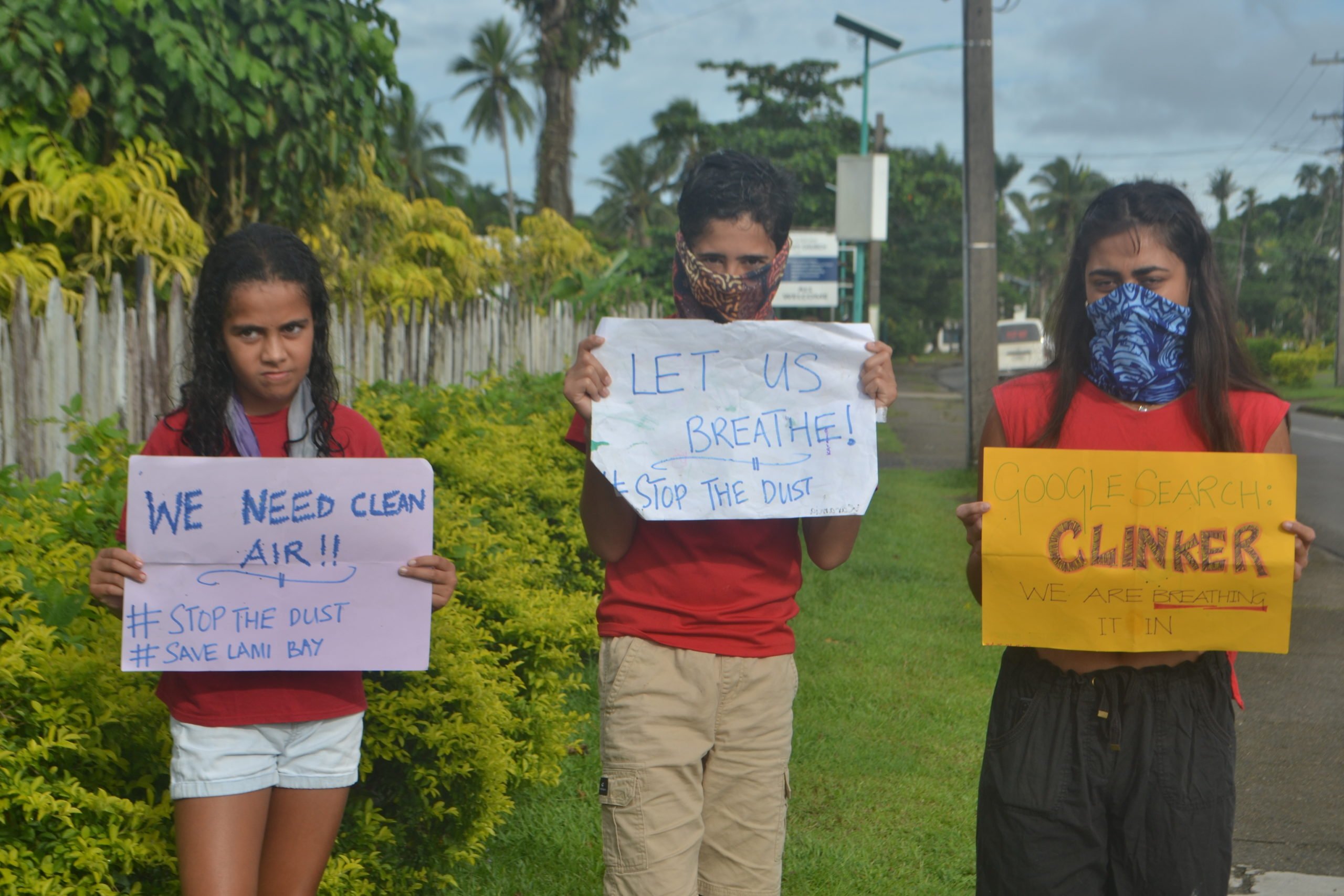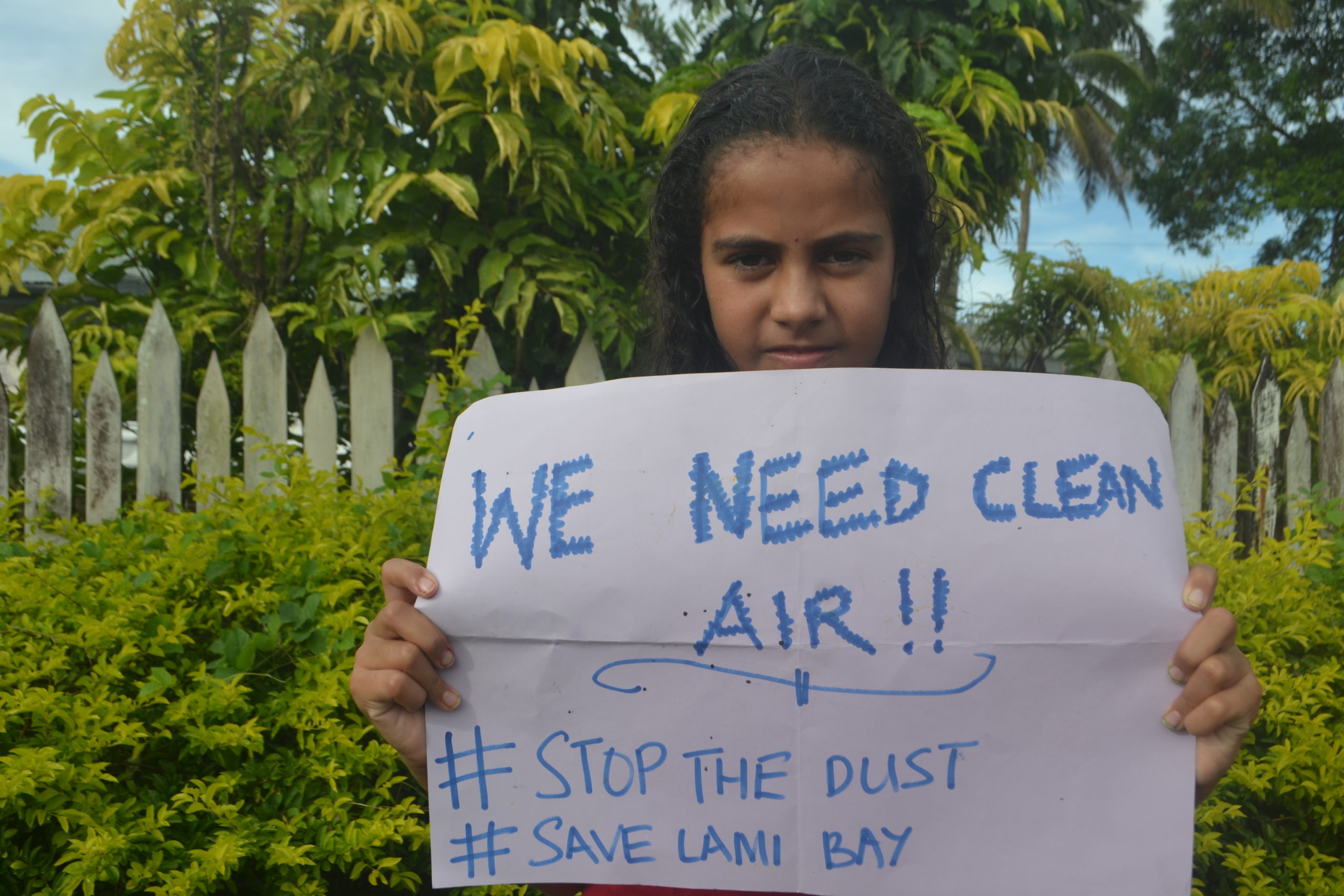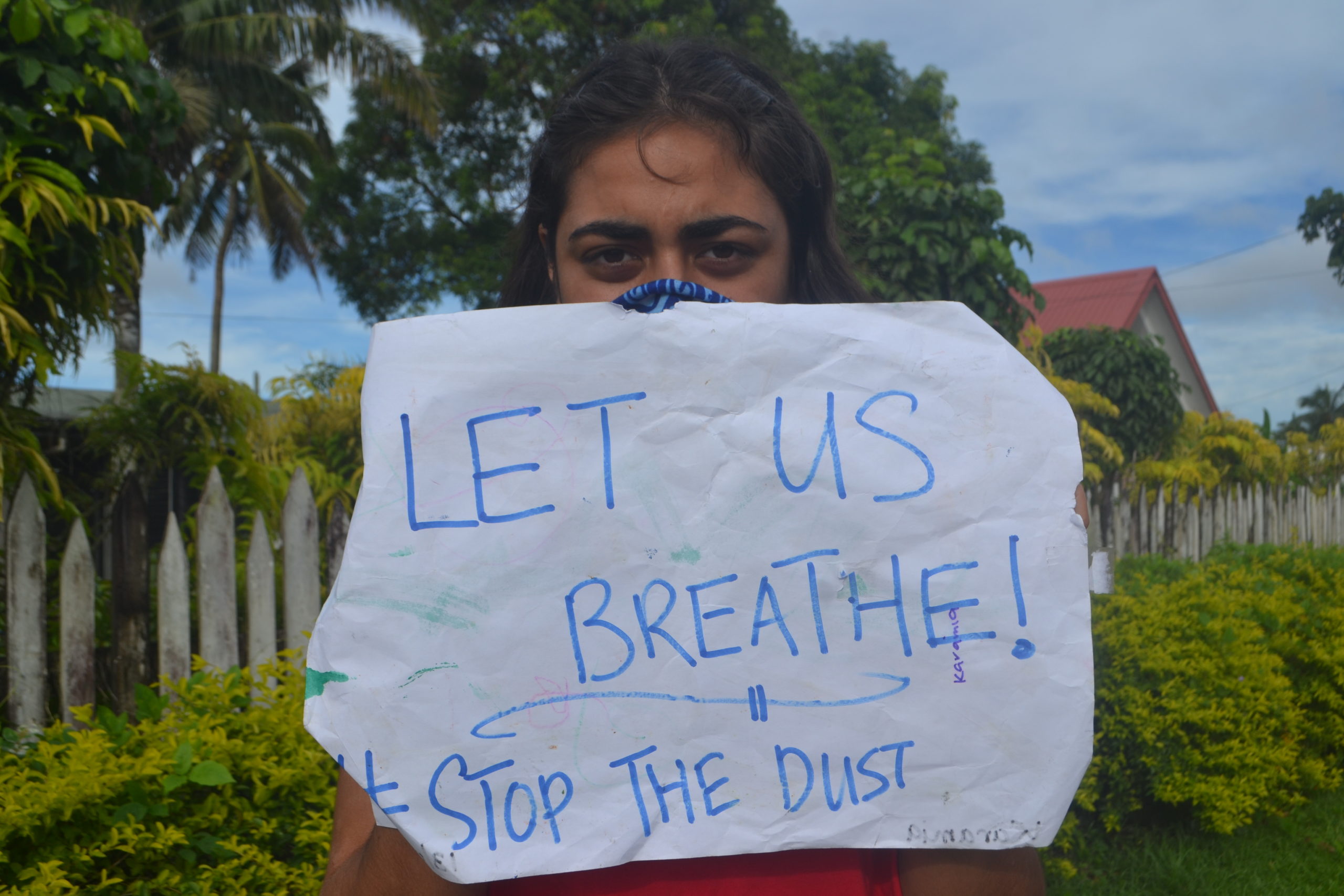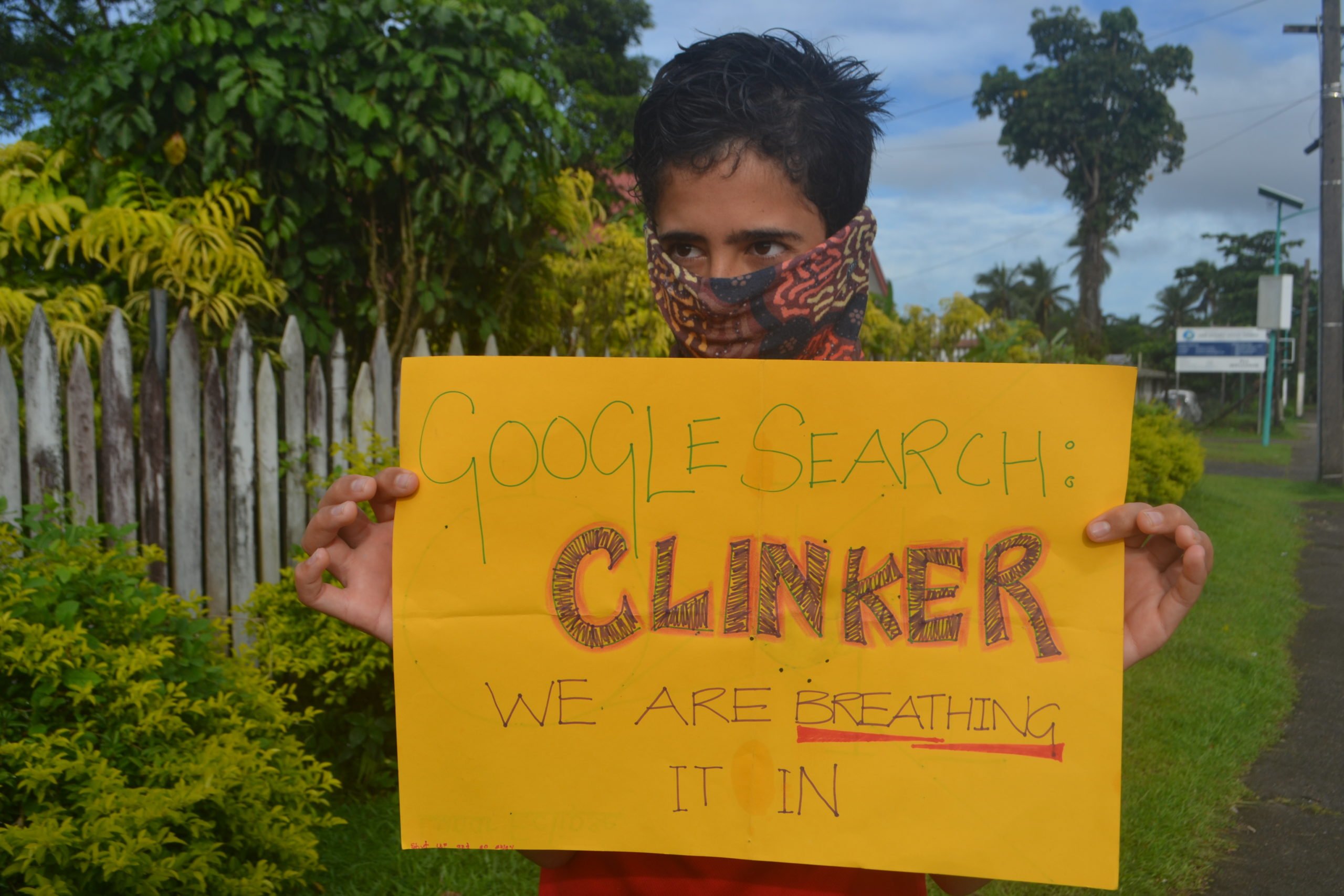In Fiji residents of a suburb close to Suva protest against the transportation of clinker to cement factories close by
A bigger environment protest is building in the suburb of Lami, just outside of the Fijian capital Suva, after a public demonstration by residents earlier this month.
Protest organiser, Sydel Whippy said several communities between Namuka-I-Lau and Nadonumai on the main Queens High are at risk.
Ms Whippy hopes to get a permit soon, after receiving 200 signatures from the residents. She is confident of attracting more support from people living in the densely populated area – who have been subject to dust emission from the cement factory for more than 20 years.
Early this month, more than 200 residents including young people and children held a peaceful protest against the two cement factories dust emissions and transportation of clinker from the wharf to their sites.
People held placards along the main highway to raise their voices against environment pollution from the Tengy and Pacific cement factories.
Tengy Cement (Fiji) Limited, located in Veisari, Lami is a Chinese investment company worth US$50 million that set up business in Fiji in 2014 to help address the chronic shortage of cement in the country.
Pacific Cement Limited on the other hand was the only cement factory in Fiji until 2014 when Tengy set up an office in the Pacific nation. It has been in operation for almost sixty years in Fiji and is a subsidiary of Fijian Holdings Limited.
On its website, Pacific Cement Limited claims it has an environmental waste permit that ensures minimised dust level with the internationally recognised system in place.
Recently both factories were issued with prohibition notice by the Ministry of Environment after public pressure that dust emitted from the operations may not be of national air quality standards
“There has been an increase of asthmatic and skin irritation cases from the Lami area over the years due to clinker dust,” said Ms Whippy.
The nearest resident to the cement factory, 49-year-old, Titilia Karawa said she has been dealing with chronic health conditions from the time she moved to the Fisheries Quarters.
“I have been living in the quarters for eight years and have been facing problems with breathing and dry cough. This is the cause of dust from the clinker that I breathe daily,” Ms Karawa said.
A grandmother of a nine-year child, Kuini Lutua of Delainavesi settlement said she has been concerned about the environment and her grandchild.
“I want my grandchildren to have a safe and clean environment to live in but the clinker dust is not safe for them because it can cause illnesses.”
Teri Tuxson stressed that her child is her primary concern because of the environmental pollution they are facing at Vugalei.
The residents during the protest told Pasifika Environews that they believe the cement factories can use sustainable methods to transport clinker.
The Chinese owned company has now resumed operation after addressing some technical monitoring issues, said Deputy General Manager, Thomas Choi.
Mr Choi said the company has been working closely with General Machinery, the company responsible for transporting material from the Suva Wharf to their Lami factory to ensure the emission is reduced.
“The material is being covered with tarpaulin when it is transported in trucks and they are also spraying the road with water after their trucks have passed to ensure that the dust is reduced, Choi recently told the local media.
A resident near Lami town, Johannah Mitchell said: “We are not against the cement factories but we want safe transportation of clinker to save our communities and have a safe environment.”




“The cement factory can bring in clinker but they should use a proper channel, instead of open trucks that cause environmental pollution and illness to the people,” said Ms Karawa.
The prohibition notices were issued to the cement companies last month by the Ministry of Environment for failing to comply with environmental requirements after resident’s voiced their concerns about the emission of dust and factories not meeting the standard.



